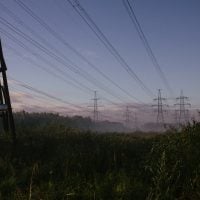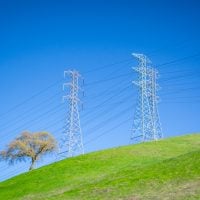In the rapidly evolving landscape of clean energy, donor partnerships play a pivotal role in driving innovation and facilitating the transition to sustainable energy solutions. These partnerships are not merely financial transactions; they represent a collaborative effort to address pressing environmental challenges while promoting social equity and economic development. By aligning the goals of non-governmental organizations (NGOs) with those of donors, these partnerships can amplify the impact of clean energy initiatives, ensuring that resources are effectively utilized to achieve common objectives.
Moreover, donor partnerships can provide NGOs with access to critical resources, including funding, technical expertise, and networks that can enhance project implementation. For instance, a partnership with a corporate donor specializing in renewable energy technology can offer NGOs insights into the latest advancements in solar or wind energy, enabling them to design more effective projects. This synergy not only enhances the capacity of NGOs but also fosters a sense of shared responsibility among stakeholders, ultimately leading to more sustainable outcomes in the clean energy sector. Are You Working on Solar Innovation or Clean Energy Access? Join us to receive updates.
Key Takeaways
- Understanding the importance of donor partnerships is crucial for the success of clean energy projects, as they provide essential funding and support.
- Identifying potential donor partners in the clean energy industry involves researching and analyzing organizations that align with the project’s goals and values.
- Developing a strategic approach to engaging with donor partners requires crafting a compelling proposal that demonstrates the impact and potential of clean energy projects.
- Leveraging networking and relationship building in the clean energy sector is essential for understanding the needs and priorities of potential donor partners.
- Negotiating and establishing mutually beneficial partnerships with donors is key to managing and maintaining donor relationships in the clean energy sector, and evaluating the success and impact of donor partnerships in clean energy projects.
Identifying Potential Donor Partners in the Clean Energy Industry
Identifying potential donor partners is a crucial first step for NGOs seeking to enhance their clean energy initiatives. The clean energy sector is diverse, encompassing various stakeholders such as government agencies, private corporations, philanthropic foundations, and international organizations. Each of these entities has unique motivations and resources that can be leveraged for impactful partnerships.
NGOs should begin by mapping out the landscape of potential donors, considering factors such as their funding priorities, geographic focus, and past projects. One effective strategy for identifying potential partners is to conduct a thorough analysis of existing clean energy initiatives within the region or sector of interest. For example, if an NGO is focused on solar energy projects in rural areas, it can research organizations that have previously funded similar initiatives.
Additionally, attending industry conferences and networking events can provide valuable insights into potential donor partners while allowing NGOs to establish personal connections that may lead to fruitful collaborations.
Researching and Analyzing Potential Donor Partners

Once potential donor partners have been identified, the next step is to conduct comprehensive research and analysis to understand their priorities and operational frameworks. This involves delving into their mission statements, funding guidelines, and previous projects to ascertain how well they align with the NGO’s objectives. Understanding a donor’s strategic focus can help tailor proposals that resonate with their interests and demonstrate a clear alignment of goals.
Furthermore, analyzing the donor’s funding history can reveal patterns in their giving behavior. For instance, if a donor has consistently supported projects aimed at reducing carbon emissions in urban areas, an NGO proposing a similar initiative may have a higher chance of securing funding. Additionally, examining the donor’s engagement with other NGOs can provide insights into their expectations regarding project outcomes and reporting requirements, enabling NGOs to prepare more effectively for future collaborations.
Developing a Strategic Approach to Engaging with Donor Partners
Engaging with potential donor partners requires a strategic approach that emphasizes relationship-building and mutual understanding. NGOs should develop a clear engagement plan that outlines how they intend to connect with donors, including specific outreach strategies and communication channels. This plan should also consider the timing of outreach efforts, as aligning with key events or funding cycles can increase the likelihood of capturing a donor’s attention.
A successful engagement strategy often involves personalized communication that highlights shared values and goals. For example, rather than sending generic emails, NGOs can craft tailored messages that reference specific projects or initiatives the donor has supported in the past. This personalized approach not only demonstrates genuine interest but also establishes a foundation for meaningful dialogue about potential collaboration.
Crafting a Compelling Proposal for Donor Partnerships
A well-crafted proposal is essential for securing donor partnerships in the clean energy sector. The proposal should clearly articulate the project’s objectives, methodologies, and expected outcomes while emphasizing how these align with the donor’s priorities. It is crucial to present data and evidence that support the feasibility and impact of the proposed initiative, as donors are often looking for quantifiable results.
In addition to presenting a compelling narrative, NGOs should also include a detailed budget that outlines how funds will be allocated. Transparency in financial planning builds trust with potential donors and demonstrates accountability. Furthermore, incorporating testimonials or case studies from previous projects can enhance credibility and showcase the NGO’s track record in delivering successful clean energy initiatives.
Leveraging Networking and Relationship Building in the Clean Energy Sector

Networking is an invaluable tool for NGOs seeking to establish donor partnerships in the clean energy sector. Building relationships with key stakeholders—such as industry leaders, government officials, and fellow NGOs—can open doors to new funding opportunities and collaborative projects. Attending industry conferences, workshops, and seminars provides platforms for NGOs to showcase their work while learning from others in the field.
Moreover, leveraging social media platforms like LinkedIn can facilitate connections with potential donors and partners. By sharing insights, project updates, and success stories online, NGOs can engage with a broader audience while positioning themselves as thought leaders in the clean energy space. This proactive approach not only enhances visibility but also fosters relationships that may lead to future collaborations.
Understanding the Needs and Priorities of Potential Donor Partners
To effectively engage with potential donor partners, NGOs must take the time to understand their needs and priorities thoroughly. This involves active listening during meetings or discussions and asking insightful questions that reveal what drives the donor’s funding decisions. By demonstrating an understanding of the donor’s mission and objectives, NGOs can tailor their proposals to align more closely with those priorities.
Additionally, staying informed about trends and challenges within the clean energy sector can help NGOs anticipate potential donor interests. For instance, if there is a growing emphasis on community-based renewable energy solutions, NGOs can position their projects accordingly to attract donors who are keen on supporting grassroots initiatives. This proactive approach not only enhances the likelihood of securing funding but also fosters long-term relationships built on mutual understanding.
Demonstrating the Impact and Potential of Clean Energy Projects to Donor Partners
Donors are increasingly focused on impact-driven funding; therefore, demonstrating the potential impact of clean energy projects is essential for securing partnerships. NGOs should develop robust monitoring and evaluation frameworks that outline how they will measure project success and report on outcomes. This includes setting clear indicators for success—such as reductions in greenhouse gas emissions or increases in renewable energy access—and establishing baseline data for comparison.
Real-world examples can be powerful tools for illustrating impact potential. Sharing success stories from previous projects or case studies that highlight tangible benefits—such as job creation or improved community health—can resonate with donors looking for evidence of effectiveness. By showcasing both qualitative and quantitative results, NGOs can build a compelling case for why their clean energy initiatives deserve support.
Negotiating and Establishing Mutually Beneficial Partnerships with Donors
Negotiation is an integral part of establishing successful partnerships with donors in the clean energy sector. NGOs should approach negotiations with a collaborative mindset, seeking to create win-win scenarios that benefit both parties. This involves being open to feedback from donors while clearly articulating the NGO’s needs and expectations.
During negotiations, it is essential to discuss not only financial contributions but also non-monetary support such as technical assistance or capacity-building opportunities. By exploring various avenues for collaboration, NGOs can create more comprehensive partnerships that extend beyond mere funding. Establishing clear terms of engagement—including reporting requirements and communication protocols—can further solidify these partnerships and ensure alignment throughout the project lifecycle.
Managing and Maintaining Donor Relationships in the Clean Energy Sector
Once partnerships are established, effective management is crucial for maintaining positive relationships with donors. Regular communication is key; NGOs should keep donors informed about project progress through updates, reports, and meetings. This transparency fosters trust and demonstrates accountability, reinforcing the donor’s confidence in the NGO’s ability to deliver results.
Additionally, acknowledging donor contributions publicly—through press releases or social media shout-outs—can enhance their visibility while showcasing the collaborative nature of the partnership. Celebrating milestones together can also strengthen relationships; inviting donors to project events or site visits allows them to witness firsthand the impact of their support.
Evaluating the Success and Impact of Donor Partnerships in Clean Energy Projects
Evaluating the success of donor partnerships is essential for continuous improvement and accountability in clean energy projects. NGOs should establish evaluation frameworks that assess both qualitative and quantitative outcomes related to project goals. This evaluation process not only provides insights into what worked well but also identifies areas for improvement in future initiatives.
Furthermore, sharing evaluation results with donors reinforces transparency and demonstrates commitment to learning from experiences. By highlighting successes as well as challenges faced during project implementation, NGOs can foster open dialogue about future collaborations while showcasing their dedication to achieving meaningful impact in the clean energy sector. Ultimately, effective evaluation practices contribute to building stronger partnerships that drive sustainable change for communities worldwide.









































